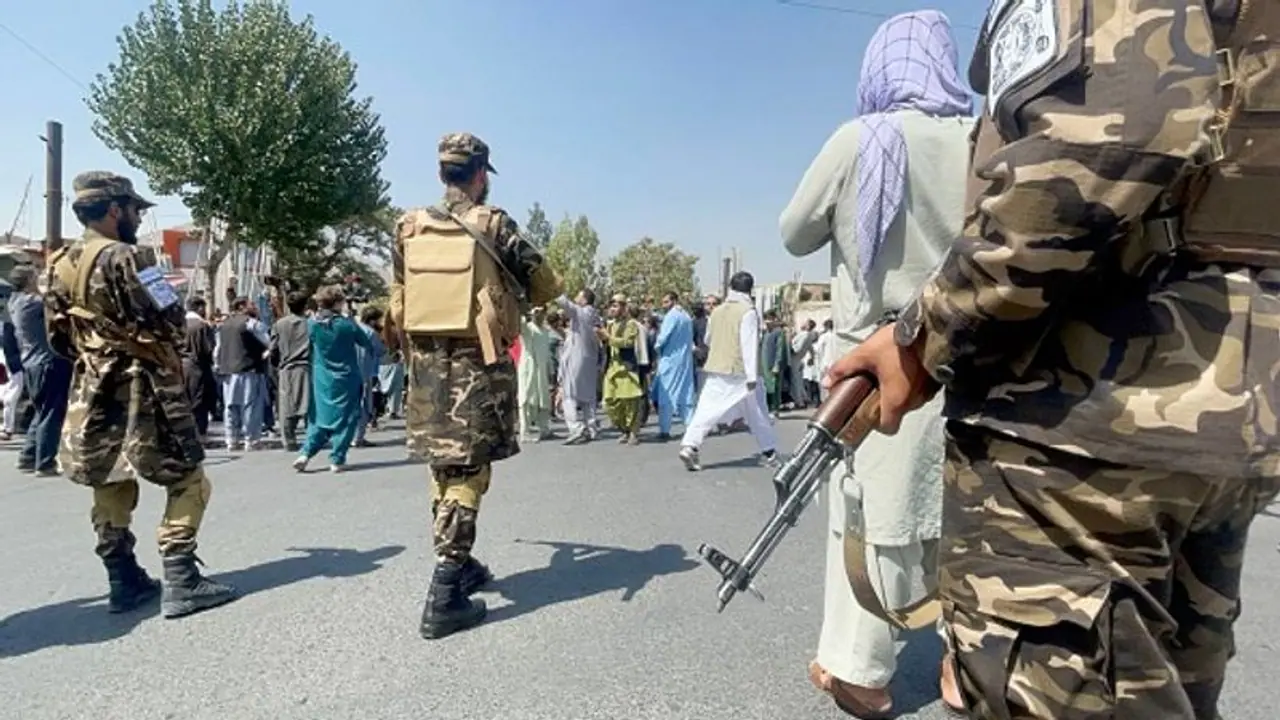Late Wednesday, the Taliban moved to snuff out any further civil unrest, saying protests would need prior authorisation from the justice ministry, adding “for the time being” no demonstrations were allowed.
Kabul: Protest rallies have been cancelled in Kabul on Thursday after the Taliban effectively banned demonstrations, warning violators “will face severe legal action”.

Earlier this week armed men dispersed hundreds of protesters in cities across Afghanistan, including the capital Kabul, Faizabad in the northeast and in Herat in the west, where two people were shot dead.
Late Wednesday, the Taliban moved to snuff out any further civil unrest, saying protests would need prior authorisation from the justice ministry, adding “for the time being” no demonstrations were allowed.
There was a noticeably stronger Taliban presence on the streets of Kabul on Thursday morning as armed men - including special forces in military fatigues - stood guard on street corners and manned checkpoints, according to AFP journalists.
An organiser of a protest outside the Pakistan embassy - where gunmen sprayed shots into the air on Tuesday to disperse a rally - told AFP on Thursday it had been cancelled because of the overnight ban.
At the site of another planned protest in the city, there were no signs of a demonstration.
Also read: Taliban agrees to allow 200 foreigners leave Afghanistan
Promises of inclusion
A Taliban interim government, drawn exclusively from loyalist ranks, formally began work this week with established hardliners in all key posts and no women - despite previous promises of an inclusive administration for all Afghans.
Tuesday night’s announcement of the cabinet was a key step in the Taliban’s consolidation of power, following a stunning military victory that saw them oust the US-backed administration on August 15.
All the top positions were handed to key leaders from the movement and in particular the Haqqani network - the most violent Taliban faction, known for devastating attacks.
Mullah Mohammad Hassan Akhund - a senior minister during the notorious Taliban regime of 1996 to 2001 - was appointed interim prime minister.
Mullah Yaqoob, the son of the Taliban founder and late supreme leader Mullah Omar, was named defence minister, while the position of interior minister was given to Sirajuddin Haqqani, the Haqqani network leader.
Taliban co-founder Abdul Ghani Baradar, who oversaw the signing of the US withdrawal agreement in 2020, was appointed deputy prime minister.
The feared Ministry for the Promotion of Virtue and Prevention of Vice - previously responsible for arresting and punishing people for failing to implement the movement’s restrictive interpretation of sharia - is being reinstated.
Even as the Taliban consolidate power, they face a monumental task in ruling Afghanistan, which is wracked with economic woes and security challenges - including from the Daesh terror group’s local chapter.
(This article was originally published by news agency AFP on Sep 9, 2021)
NOTE: Asianet News humbly requests everyone to wear masks, sanitize, maintain social distancing and get vaccinated as soon as eligible. Together we can and will break the chain #ANCares #IndiaFightsCorona
